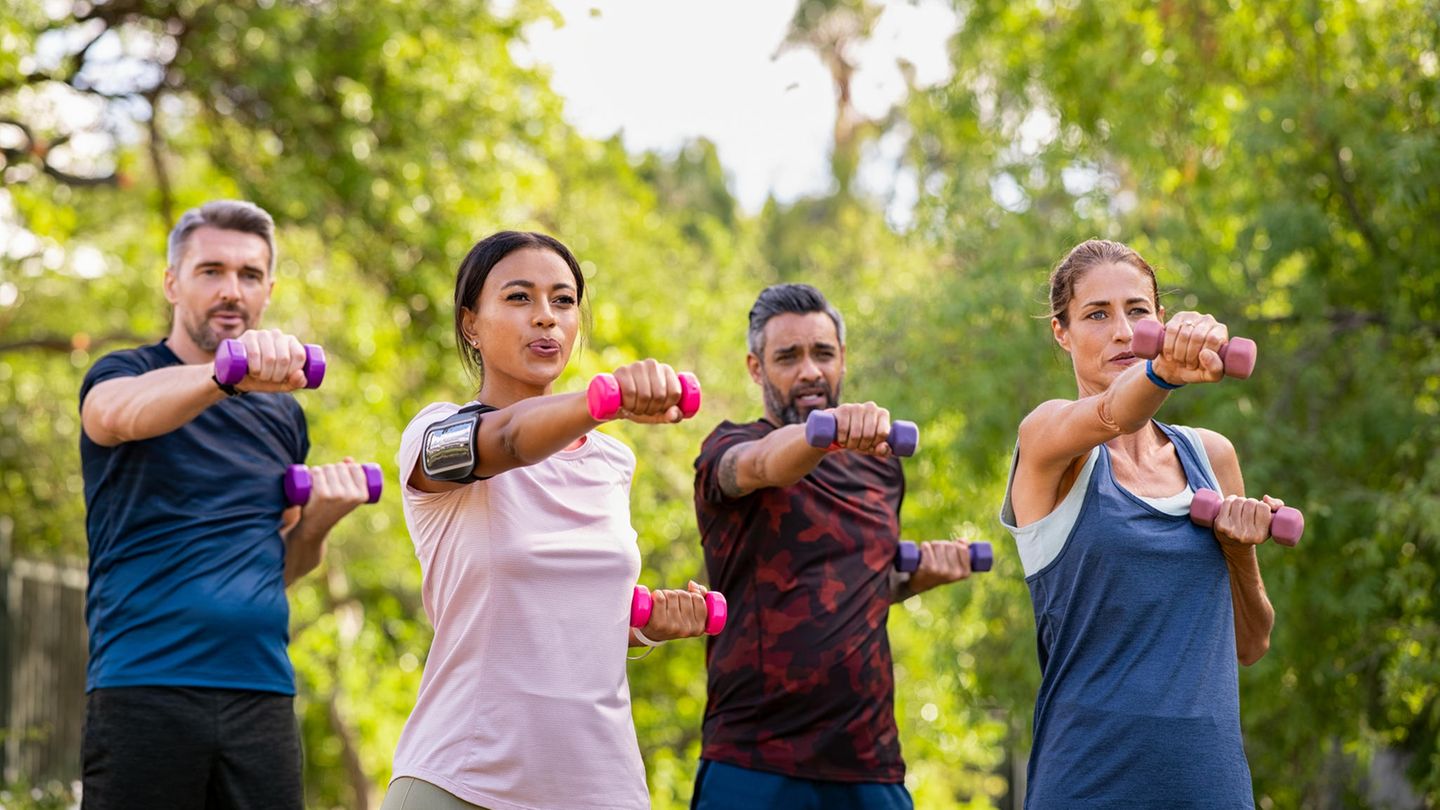Exercise is important to stay healthy – we all know that. However, a daily training session does not fit into every day. A study shows that even exercise can only be effective on weekends.
The days in the office are hectic, after work the children want to be entertained and the stomach still needs a meal. If everyday life is packed during the week, not everyone finds the motivation to do sports several times a week. You don’t necessarily have to, as a study shows. You can catch up on the sport from the week on just one or two days a week – at least if the exercise is only intended to protect against diseases of civilization.
Professor Stefan Schneider, a sports scientist at the German Sports University in Cologne, says the question of whether a longer workout at the weekend is enough to protect against lifestyle diseases has been a topic of scientific debate for a long time. “The colleagues did research with a large cohort and the study actually seems to prove that sport on the weekend is enough to protect yourself from diseases of civilization.”
Exercising only on weekends protects against lifestyle diseases
The scientists based their study on the exercise recommendations of the World Health Organization. This recommends at least 150 minutes of moderate exercise per week or at least 75 minutes of intensive endurance training. The researchers used data from the US National Health Interview Survey. There, participants provided information about their physical activity from 1997 to 2013. The subjects exercised the recommended amount of time either spread over the week or concentrated on one or two days a week. The scientists looked at the connection between physical activity and deaths and causes of death such as cancer, diabetes and cardiovascular diseases. The result: For the mortality risk from lifestyle diseases, it is almost irrelevant whether you exercise moderately more often during the week or do intensive training at the weekend.
But if you take a closer look, the calculation is not that simple. “We have to find a balance between physical stress and relief in everyday life.” That means: If you have a physically intensive job, for example in care, you may need rest after work and would like to sit. On the other hand, people who sit in front of a desk all day do it well if they move after work to get rid of aggression and tension, says sports scientist Stefan Schneider. The question of motivation is always important: While exercise at the weekend is sufficient to prevent diabetes, obesity and cardiovascular diseases, the expert finds it important for mental health to exercise more often than just at the weekend.
It doesn’t matter whether you do the morning jog along the Elbe or dance along to the workouts of fit influencer Pamela Reif. What makes more sense depends on the desired goal: “Short online units can be helpful to reduce stress in everyday life. But they should be intensive – a 15-minute walk is not enough here. If you want to lose weight, go along longer sessions better,” explains the expert. “Everyone has to find the right sport for themselves. It’s always about personal motivation and enjoying exercise. Jogging is a good endurance sport, but if I don’t enjoy running, I can do it for maybe three weeks. It It’s better to keep doing whatever sport I enjoy long-term, even if it doesn’t provide optimal endurance training. Regular exercise throughout life is the key to health.”
Those who do not exercise should incorporate exercise into their everyday lives
If you are still looking for the right type of sport, you can think about what exercise you enjoyed as a child and build on that, advises Stefan Schneider. “For adults who had no positive experiences with exercise in childhood and were not introduced to sports, it tends to be more difficult to get into sports and do sports regularly in adulthood.”
Anyone who has never liked sport or is not fit at all can start in everyday life: For those who don’t like sport, it can be a good way to incorporate exercise into everyday life, recommends the sports scientist. Bike to work or take the stairs instead of the elevator. “At this point, however, politics must also think along, for example if there are more cycle paths, more people will also ride their bikes. So we need politics that promote exercise,” says Stefan Schneider.
Sources: ,
Source: Stern




